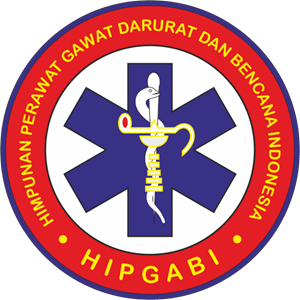The Effect of Pre-Hospital Stroke Life Support Education on Family Knowledge and Self-Efficacy with Stroke Risk Patients
Downloads
Introduction: Knowledge and self-efficacy are some of the factors in providing pre-hospital stroke life support so that it is expected to reduce mortality and morbidity due to stroke in Indonesia. The purpose of this study was to determine the effect of pre-hospital stroke life support education on the knowledge and self-efficacy of families with stroke risk patients.
Methods:The study design used a pre-experiment (one-group pre-posttest design). The sample comes from families who have stroke risk patients in the working area of Puskesmas Pacar Keling Surabaya. The sampling technique used purposive sampling with inclusion criteria of having family members at risk of stroke (diagnosis of hypertension, diabetes, cholesterol, heart disease, smoking, alcoholics, obesity, and the elderly), so a sample of 32 people was obtained. The independent variable is health education pre-hospital stroke life support, while the dependent variable is knowledge and self-efficacy. The research instrument used a questionnaire. The research was conducted online via WhatsApp and google form, then analyzed by using the Wilcoxon Signed-Rank Test using SPSS with significance α ≤ 0.05.
Results:The results of statistical tests showed that there was an effect of pre-hospital education stroke life support on family knowledge (p = 0.002) and self-efficacy (p = 0.000).
Conclusion:There is an effect of pre-hospital stroke life support education on knowledge and self-efficacy of families with stroke risk patients in the working area of Puskesmas Pacar Keling Surabaya.
Copyright (c) 2021 Dinda Dhia Aldin Kholidiyah, Abu Bakar, Erna Dwi Wahyuni

This work is licensed under a Creative Commons Attribution 4.0 International License.
1. The journal allows the author to hold the copyright of the article without restrictions.
2. The journal allows the author(s) to retain publishing rights without restrictions.
3. The legal formal aspect of journal publication accessibility refers to Creative Commons Attribution (CC BY).

















